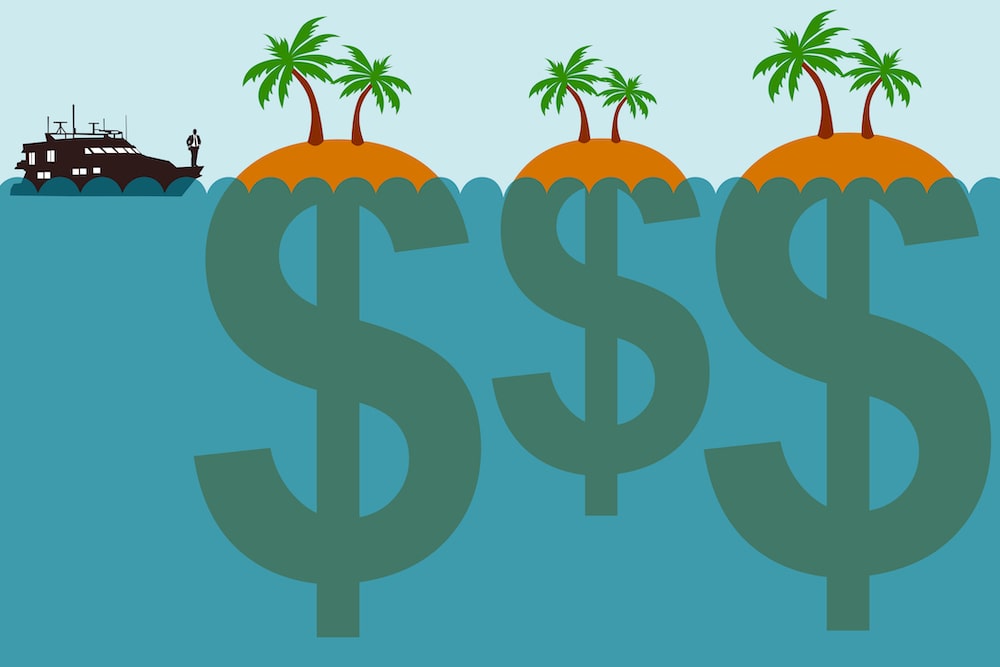RIO DE JANEIRO, BRAZIL – Brazil is the third biggest revenue loser in the world in absolute terms with the transfer of profits of multinational companies to tax havens, behind only the USA and Germany, according to Tax Justice Network, an NGO specialized in tax issues.
As it is second only to the Americans and Germans, Brazil has the position of losing more revenue than any other country outside the group of rich nations, says Alex Cobham, director-general of the NGO.

This situation should change with a global tax agreement under negotiation at the Organization for Cooperation and Development (OECD). The U.S. now wants to push in search of funds for its huge infrastructure program.
The NGO estimates that Brazil misses out on US$14.9 billion a year in “global tax abuse”: US$14.6 billion from legal tax optimization by multiple companies that use loopholes in the tax system and send part of their profits to low-tax jurisdictions; and another US$280 million from tax evasion by individuals.
In total, the U.S. loses US$89.3 billion to tax havens, the UK US$39.5 billion, Germany US$35.5 billion, and France US$20.2 billion. The difference between those numbers and that of Brazil is that Brazil’s loss is almost exclusively attributaboe to multinational corporations. The United Kingdom is among the countries that favor the transfer of profits, especially in the British Virgin Islands, the Cayman Islands, and Bermuda, three British territories. And the French fail to collect several billion dollars because of individual tax evasion.
In Brazil’s profile, Tax Justice notes the Brazilian loss is equivalent to 3.2% of tax revenue. The billions it misses out on could pay a year’s salary of 2 million nurses.
It also assesses that Brazilian residents hold several companies in places with high financial secrecy levels, such as the Cayman Islands, British Virgin Islands, and the Bahamas, indicating a high risk of illicit financial flows via direct investment.
Compared with Argentina, Chile, and Peru, the NGO considers that Brazil is highly vulnerable to illicit financial flows. While Peru’s vulnerability has decreased over time, Brazil’s remains constant.
With the global tax deal under negotiation at the OECD, Brazil stands to gain on two pillars: in a new profit-sharing of digital companies, to pay tax where they do business, regardless of physical presence, and with the creation of the global minimum tax on multinationals in general.
A source close to the negotiation estimates that companies and individuals in Brazil have always used jurisdictions with low or zero taxation. And now, the important thing is to have a global rule for everyone that does not create friction.
In June last year, the USA, then governed by Donald Trump, opened an investigation against Brazil and several other countries that have adopted or considered taxing digital services.
The United States Trade Representative (USTR) opened an investigation based on section 301 of the Trade Act of 1974, which gives the U.S. government broad authority to respond to what it considers unfair practices adversely affecting U.S. business interests.
Washington complained about the so-called Cide-Digital, a bill proposed by Congressman João Maia (PL-RN). The Brazilian government had to clarify and convince Washington that it was a only bill, in preliminary stages, and that it did not mean sponsorship by the Palácio do Planalto.
Under President Biden’s administration, the US concluded last month the investigation against Brazil but will continue to “monitor” the country’s situation.
With a global agreement that will allow collecting more on the profits of the “big tech”, the risks of several commercial conflicts may be deactivated.
Source: Valor

